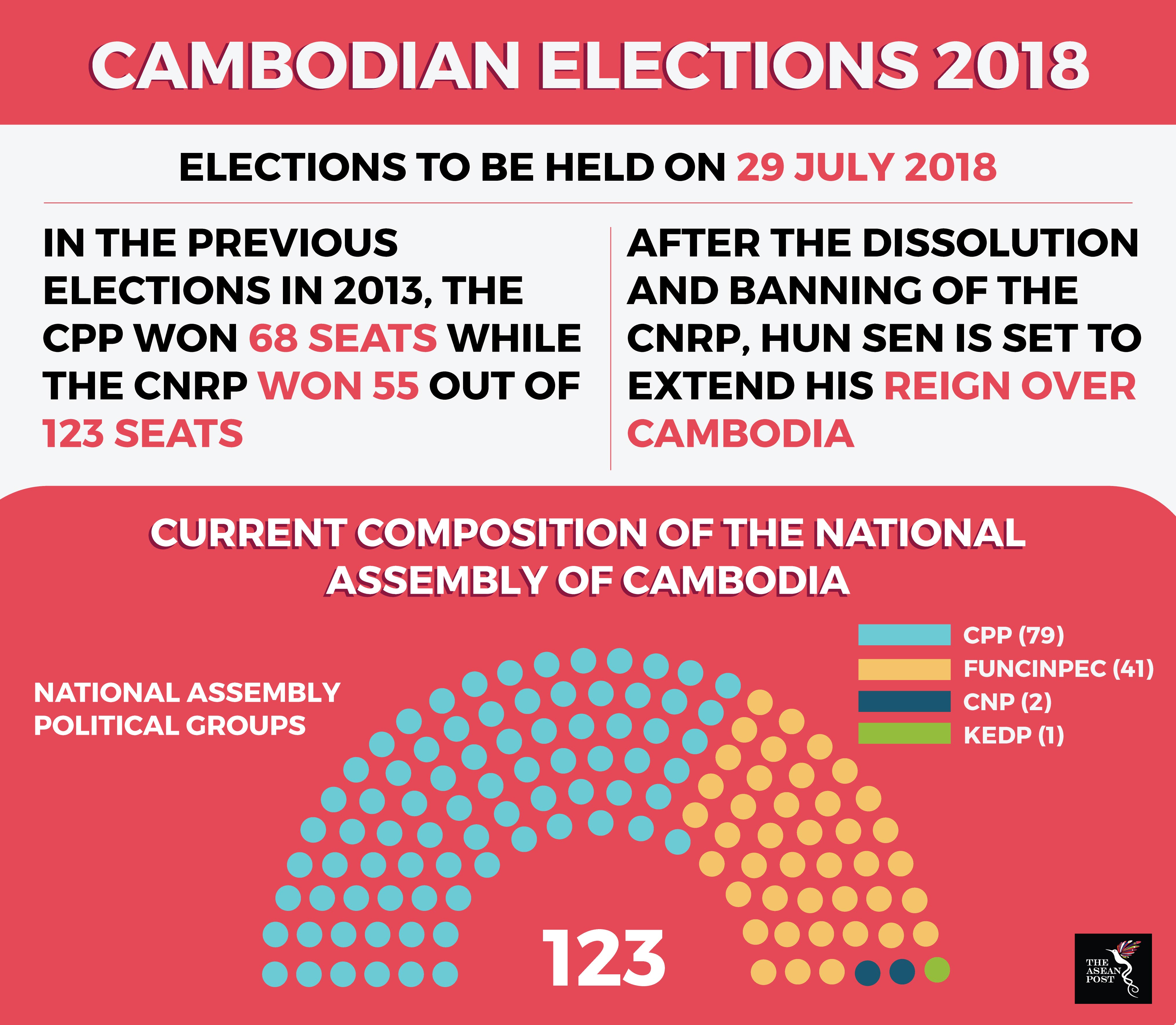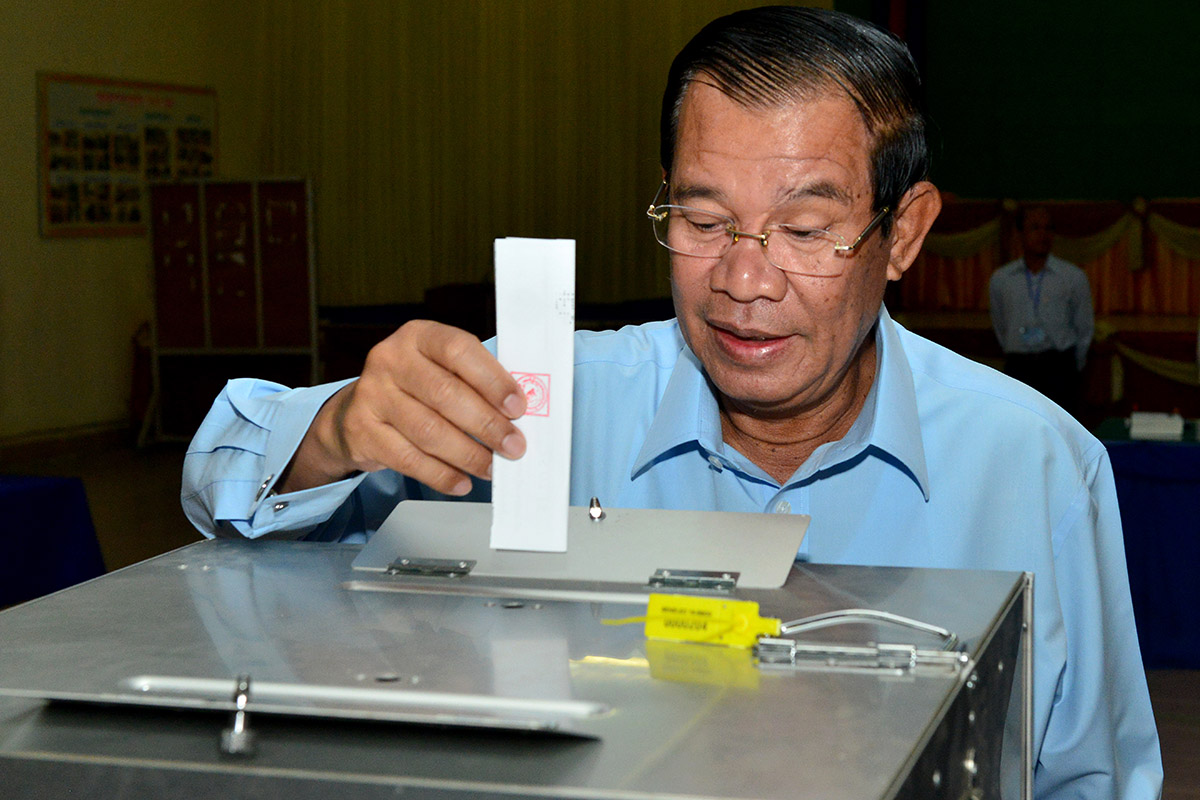With the Cambodian national elections coming in less than six months’ time, Cambodian opposition figure Sam Rainsy has called for a boycott. Sam Rainsy, who is currently on a self-imposed exile criticised the Hun Sen administration for not allowing the opposition to run for elections.
"If they don't allow our party to participate, our supporters will not participate. Our call for a boycott is conditional. It is not too late now to find an arrangement,” explained Sam Rainsy to the media on a recent trip to Japan.
Sam Rainsy’s call for a boycott of the elections has received backing from other Cambodians overseas. Cambodian expatriates gathered in Australia last month for the World Khmer Conference and demanded for sanctions against Hun Sen and a boycott of the upcoming elections. They have also called for the release of Kem Sokha, the leader of the now dissolved Cambodia National Rescue Party (CNRP).
Iron grip of Hun Sen
Despite carrying out a slew of economic reforms after the People’s Republic of Kampuchea transitioned into Cambodia in 1989, Cambodia has been slow to implement political reforms. Hun Sen, the current prime minister of Cambodia has been ruling since 1985, making him the longest serving prime minister in the world. Hun Sen has been criticised on numerous occasions for his refusal to respect human rights and implement democratic reforms in the country.
Throughout his premiership, he has been known to throw political opponents in jail and there are also allegations that the elections in Cambodia aren’t free and fair.
In 2017, the Cambodian government arrested politician and activist, Kem Sokha which later led to the dissolution of the CNRP.
Founded by Kem Sokha and Sam Rainsy in 2012, the CNRP was the sole challenger to Hun Sen’s Cambodian People’s Party (CPP). Other major parties in Cambodia such as the National United Front for an Independent, Neutral, Peaceful and Cooperative Cambodia (FUNCINPEC) are coalition partners of the CPP and do not challenge the power of the CPP.
The dissolution of the CNRP has left a vacuum in the Cambodian political landscape. Charles Santiago, chairman of ASEAN Parliamentarians for Human Rights called the dissolution of the party as “…the final nail in the coffin for Cambodia.” The party was dissolved because it was accused of working together with foreigners to unseat Prime Minister Hun Sen. As a result of the ruling to dissolve the party, all CNRP members lost their seats and 118 senior party officials were banned from politics for five years.
The gap left by the dissolution of the CNRP means that Hun Sen will run virtually unopposed in the upcoming elections. Furthermore, a senior CPP official told local media that the elections slated to take place on 29 July will go ahead as scheduled despite no officials from civil society being registered to monitor the election process.

Seeking help from Japan
Currently, Sam Rainsy is in Japan urging the government there to convince Cambodia to carry out free and fair elections. Japan is Cambodia’s biggest donor and Rainsy is hoping that this could be used as leverage against Hun Sen’s government. Last year, Japanese investments in Cambodia were worth about US$1.6 billion. According to Rainsy, Japan intervening in Cambodia would also benefit it because investors would prefer investing in a country with a more stable and democratic political climate.
However, in reality there is not much Japan can do. Even if the Japanese government agreed with Rainsy, the most they could do is to advise Hun Sen against banning the opposition in the upcoming elections. Japan would have no intention to intervene in a sovereign country nor would its investors. Countries with bad human rights records such as Myanmar and China have shown that the flow of money is not always dictated by morals.
With Rainsy and many of the CNRP members in exile, it is difficult for them to organise a mass movement against Hun Sen. The best Rainsy can hope for is that the growing international pressure would cause Hun Sen to change his mind. While it may be unlikely, they have few options and even less time left until the upcoming elections.
